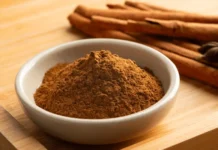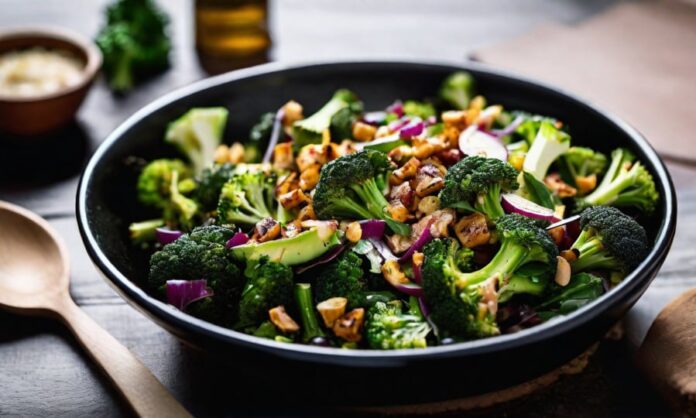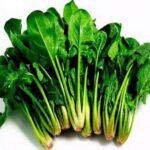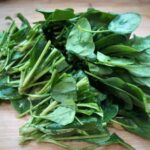A healthy diet as a cancer prevention method has proven effective. Research by Kansas State University found that a sensible diet can reduce the risk of chronic diseases such as heart disease, stroke, and cancer. Simply incorporating some healthy foods, especially the four vegetables listed below, can significantly lower your cancer risk.
1. Spinach – Health Benefits and Cancer Prevention
Spinach, also known as spinach, is a highly nutritious vegetable with multiple health benefits. It is rich in essential nutrients such as betacarotene, vitamins A, C, and K, manganese, iron, folate, fiber, and particularly phytochemicals, which have anticancer properties.
According to the Clinical Nutrition Center of K Hospital, phytochemicals in spinach can be grouped into three main categories:
- The carotenoid group, including beta-carotene, lutein, and zeaxanthin, helps prevent free radical formation, reducing DNA damage and protecting cells from carcinogenic factors.
- The flavonoid group containing luteolin inhibits tumor blood vessel growth, thereby hampering cancer cell development. Luteolin also promotes abnormal cell death or apoptosis.
- The flavonoid group with quercetin has anti-inflammatory properties, enhances DNA repair, and promotes apoptosis, aiding the body in eliminating diseased cells.
Given its rich chemical composition, numerous studies have been conducted to assess spinach’s role in preventing and supporting the treatment of various conditions, especially cancer.
- Breast Cancer: Research suggests that women with higher plasma carotenoid levels may have a 15-20% lower risk of developing breast cancer compared to those with lower carotenoid levels.
- Lung Cancer: Individuals who consume more quercetin, lutein, and zeaxanthin-rich foods have a reduced risk of lung cancer.
- Gastrointestinal Cancer: Higher intake of lutein-rich foods is associated with a decreased risk of colorectal, stomach, and esophageal cancers.
With these significant benefits, spinach is an excellent choice for a healthy diet and can help prevent cancer.
2. Kale – Health Benefits and Anticancer Properties
Kale, a cruciferous vegetable, is packed with vitamins and minerals and offers multiple health advantages. It contains compounds with potent anticancer effects, particularly when digested, as they break down into substances like sulforaphane and indole-3-carbinol, which inhibit cancer cell growth.
Kale also boasts phenolic compounds, as demonstrated in lab studies, with anticancer capabilities. Another critical component is quercetin, a potent antioxidant that neutralizes free radicals—molecules that can damage cells and DNA. Quercetin also exhibits anti-inflammatory properties, beneficial for cancer and other chronic disease prevention.
3. Broccoli – Protective and Cancer-Preventive Effects
Including broccoli in your weekly diet may protect against cancers such as stomach, bladder, and skin cancer. Scientific research reveals that a compound called sulforaphane, found in broccoli, can activate certain cancer-fighting genes and help eliminate carcinogens.
Consuming broccoli provides your body with dozens, if not hundreds, of super-nutrients beneficial to your health. Additionally, the cancer-fighting benefits of broccoli are also present in other cruciferous vegetables like cabbage, watercress, and horseradish. These vegetables contain compounds that support the body’s protection and cancer prevention.
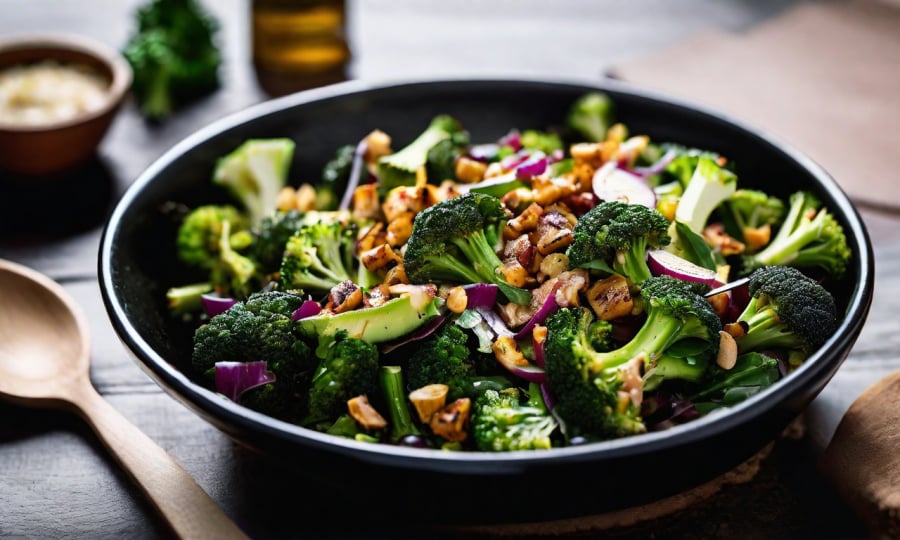
Adding broccoli to your diet may help prevent cancer.
4. Watercress – Cancer Prevention and Cell Protection Benefits
Watercress is a vegetable rich in vitamin C, beta-carotene, lutein, zeaxanthin, and phenolic compounds. These substances act as “bodyguards,” shielding cells from harmful free radicals, preventing DNA damage, and reducing the risk of cancer development.
Additionally, watercress contains isothiocyanates, sulfur-containing compounds characteristic of cruciferous vegetables. These compounds have been shown to inhibit cancer cell growth and induce apoptosis in cancer cells. However, effective cancer prevention requires a combination of factors, including a healthy diet, a scientific lifestyle, regular exercise, and periodic health check-ups.
Superfoods for a Healthy Liver: Revamp Your Evening Meals!
Introducing the ultimate guide to evening eats for optimal liver health! Supercharge your supper with these delicious food choices, carefully curated to nourish and support your liver’s natural detoxification process. Bid farewell to boring bedtime snacks and embrace a culinary journey towards a healthier you. Get ready to tantalize your taste buds and give your liver some love!




